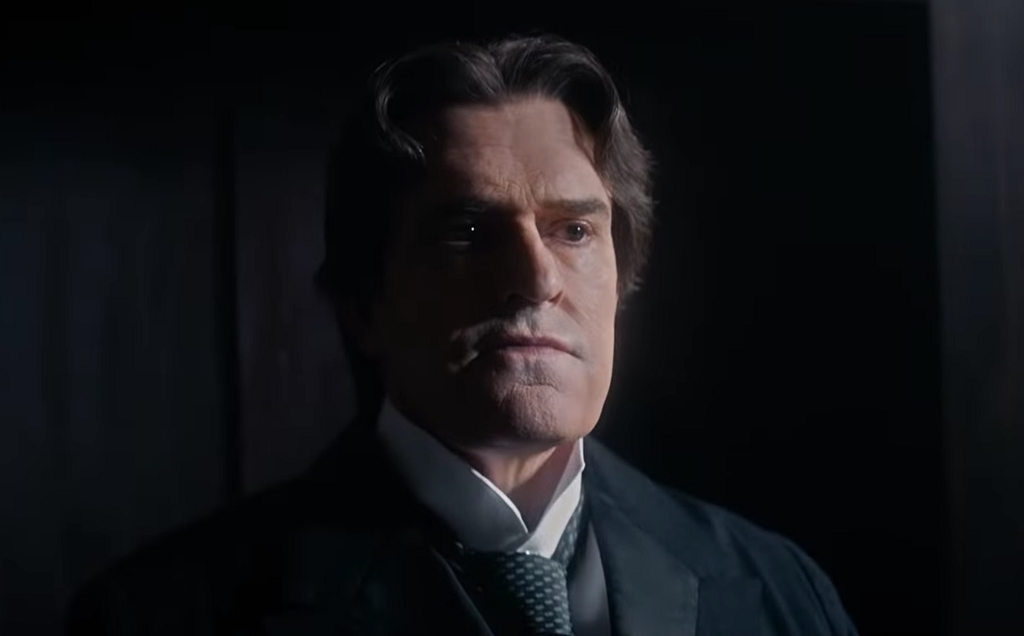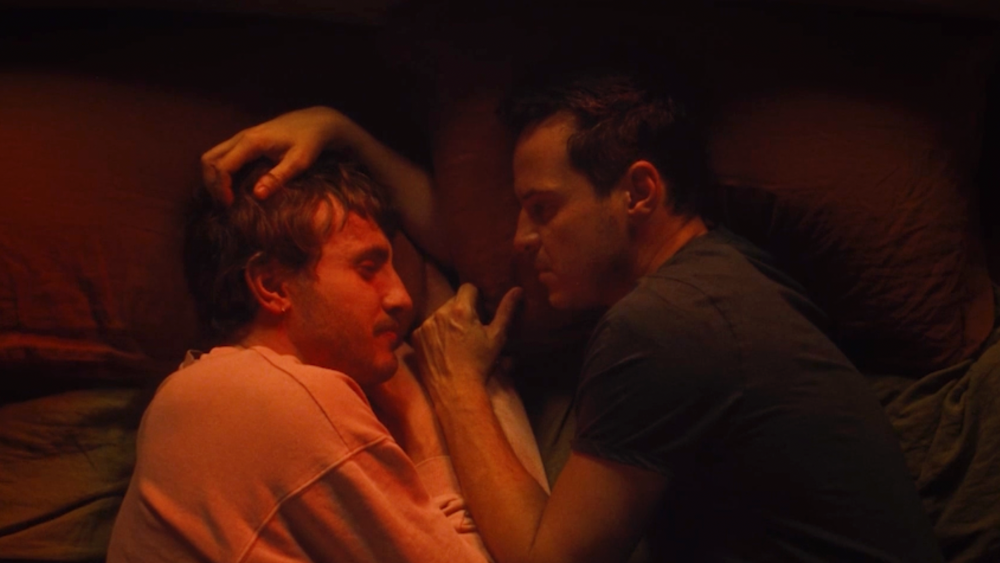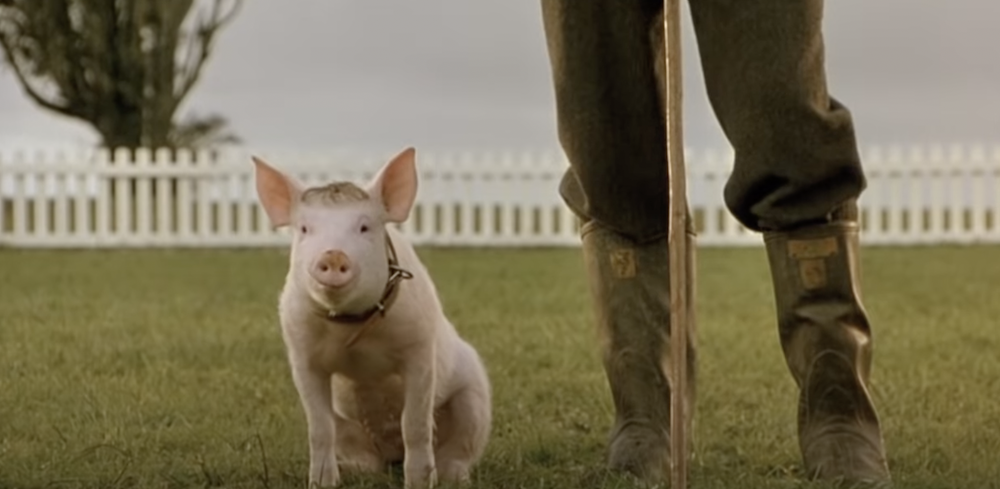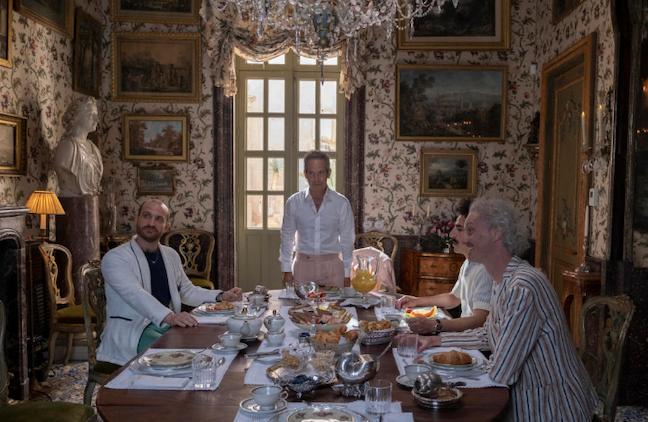Books & Culture
Is Oscar Wilde Doomed to Suffer in Film?
Biopics of the author, including the new “The Happy Prince,” focus on his tragedy more than his wit

Shortly after the ensemble cast of Lady Windermere’s Fan took their bows after the play’s premiere performance in 1892, playwright Oscar Wilde addressed the cheering crowd at the St James’s Theatre in London. “Ladies and gentlemen,” he told his audience, “I have enjoyed this evening immensely. The actors have given a charming rendering of a delightful play, and your appreciation has been most intelligent.” He then went on to congratulate them (that is, the audience) on the success of their performance, which led him to believe they thought “almost as highly of the play” as he did himself. The impromptu speech, delivered with a cigarette in hand, remains a classic example of Wildean wit: self-deprecation leads to self-adulation, and mockery mingles with exaltation to the point where the writer’s disarming charm became both armor and cudgel. This was the Wilde who was the toast of the town, the one who lives on in performances of his very funny plays, in undergraduate classes that read The Picture of Dorian Gray, and even in the many Goodreads quotes that remind us of his knack for cutting epigrams. Yet it’s also the Wilde that biopics set up to deconstruct. In his move to the big screen, Wilde has long been turned from a wit into a martyr, a cautionary tale both about rampant homophobia and the perils of shameless superficiality.
Oscar Wilde died at age 46. He was destitute and living in Paris. Only eight years had passed since his famed speech, but his entire world had been upended. To know what happened in those pivotal years one need only watch any of the four filmed biopics of the playwright that have been produced in the last 60 years. Whether they begin in the glittering world of London theaters (as does the Peter Finch-starring 1960 film The Trials of Oscar Wilde, which opens with the speech above) or plunge us straight into Wilde’s penniless existence in France (as does the new Rupert Everett vehicle The Happy Prince, directed by the actor himself), the key story to be told about this 19th-century dandy is the one about how he lost everything he had — and for whom.
In his move to the big screen, Wilde has long been turned from a wit into a martyr.
Because to tell the tale of how the author of The Importance of Being Earnest ended up separating from his wife, barred from seeing his two kids, serving two years in prison doing hard labor, and becoming a persona non grata in English society is to tell the tale of Lord Alfred Douglas. Better known as “Bosie,” the young high-cheekboned man (played in 1997’s Wilde by Jude Law, if you need good mental image) had a longstanding relationship with Wilde — a “close friendship,” as the 1960 Oscar Wilde film euphemistically puts it. Bosie’s affiliation with the famed playwright led to Wilde bringing a libel suit against his friend’s father, Lord Queensbury, for calling him a sodomite — a suit he summarily lost, not least because the statement was true. This led to Wilde being tried and convicted for “sodomy and gross indecency” — in short, for being gay.
That trial, as it happens, remains the most revisited part of Wilde’s history. If one were to watch the four films made about Wilde in quick succession, you’d find the trial at the heart of them all, with lines from it being repeated word-for-word. Part of this has to do with how well-documented the trial was. Were it not for such accurate transcriptions, we never would have come to associate Wilde with the phrase “the love that dare not speak its name”; it originally came from a poem by Lord Alfred Douglas (“Two Loves”) which became incriminatory evidence for the lurid relationship between the two.
‘We The Animals’ Takes Queer Children Seriously
But if there’s a repetitiveness to the stories we’ve come to tell about Wilde, it is mostly because we’ve been driven to make him a martyr. In life, this meant punishing him for his flamboyance (and his sexuality), and in his after-life this means only telling that part of his story. In fairness, the impetus to tell the story of Wilde’s trials, with an emphasis on the cruelty of Lord Queensbury, corresponds to a desire to rehabilitate a writer who ended his life in penniless infamy. The two 1960 biopics, for example, follow this kind of narrative, and it’s no surprise to find their two respective Wildes playing a two-dimensional image of the playwright. Peter Finch, who punctuated his every line reading as if it were punchline, and Robert Morley, whose unblinking and affected Wilde seemed to constantly wear the mask of comedy on his face, gave us Wildean wit at its zenith and showed us its demise. There’s a thrust to see Wilde as a suffering gay in order to restore him to his rightful place in our cultural imagination.
The two — wit and suffering — are not mutually exclusive, but big screen attempts to tell Wilde’s story so heavily lean into his tragedy that they make his life and work feel subservient to it. This made more sense in 1960 where Hollywood productions were still beholden to the Motion Picture Code, which required that every portrayal of moral deviance (like, say, homosexuality) be paired with an ending that showed audiences the tragic consequences of non-normative sexual practices. The two more modern adaptations, produced independently and away from such censuring demands, have given us more softened takes on Wilde with well-rounded performances that go beyond gay minstrelsy. This is, no doubt, a reflection of the out gay filmmakers behind the films and out gay actors portraying him in an era where the “love that dare not speak its name” is more vocal than ever. Stephen Fry (in 1997) and Rupert Everett (in 2018) do away with the affectations that Finch and Morley had trotted out, and have chance to play a more tender Wilde. Moreover, able to sidestep moral censorship issues, the films show a decidedly more queer-friendly take on the writer. Not only do you see him openly swooning over Bosie and tearfully being moved by the generosity afforded him by his close friend Robbie, but there’s a number of (tastefully) graphic sex scenes and enough full frontal nudity that stop you from wrapping either relationship in any kind of euphemistic language.
Big screen attempts to tell Wilde’s story so heavily lean into his tragedy that they make his life and work feel subservient to it.
If there’s one thing these four films have in common, it is the centrality they place not only on the trials but on Wilde’ tempestuous affair with Bosie. Just as Wilde couldn’t quit Bosie in life (as The Happy Prince shows us, the two lived together after his prison sentence, seducing and inviting boys over to their estate before running out of money once Oscar’s wife and Bosie’s mother both cut them off financially), those wanting to introduce the Dorian Gray author to a new generation feel the need to re-tell this most infamous love story. But with time, we’ve seen filmmakers increasingly sour on Bosie. If he was a narcissistic buffoon in the 1960 iterations, he’s gone full fuckboi in these most recent films. His cruelty has become more astringent. One need only look at Jude Law’s 1997 performance, where at one point he yells at an invalid Wilde too sick to even get himself a glass of water: “There are two boys out there. If you’re not coming I’ll fuck them both myself!”
Here’s where The Happy Prince may be the most successful of this quartet of biopics. Despite focusing yet again on Wilde as a sad gay and rehearsing still some of the greatest hits we’d seen in those three previous versions (the play opening, the trial verdict, the prison sentence, all in flashbacks this time around), writer/director Rupert Everett makes a point of disassembling the Wilde/Bosie romance. Using its titular short story as a frame (we first see Oscar telling it to his two young boys and later to two young Parisian urchins), Everett manages to put not Bosie but Robbie Ross — Oscar’s first lover, a friend, and later his literary executor — at the center of this story. He becomes the helpful “swallow” to Wilde’s “Happy Prince,” their close friendship and platonic relationship the emotional anchor of the film. It’s a touching revisionist history that stages Wilde’s attempts to wrestle himself away from Bosie.
“The Happy Prince” is a touching revisionist history that stages Wilde’s attempts to wrestle himself away from Bosie.
Still, I crave other big-screen versions of Wilde. Ones where we see his queer sensibility without needing to have it serve as prologue for his dour decline, a cautionary tale about Victorian repression. Where’s the Oxford-set film about his time in college when he became enthralled with aestheticism and was taught by both Walter Pater and John Ruskin? Where’s the romantic drama all about the love triangle between Wilde, Bram Stoker and Florence Balcombe, Oscar’s childhood sweetheart who ended up marrying the Dracula writer instead? Where’s the road trip film all about the lecture tour Wilde did in North America that was tied to the U.S. premiere of Gilbert and Sullivan’s Patience? Where’s the behind-the-scenes drama all about the failed London production of Salomé which was to star Sarah Bernhardt? I hope they’re currently being daydreamed, written even. Wilde’s multitudes demand to be plumbed further, proof that he was and will be more than a mere example of the joys and dangers of utter decadence.








